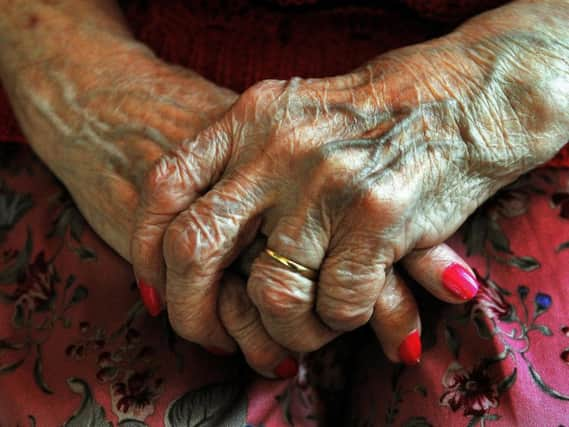Battle against loneliness for Wiganers in social care


A survey conducted of adults using social care services between 2016 and 2017, has revealed that only around a third of participants (34.5 per cent) felt that they had as much social contact as they would like.
Other news: Mystery surrounds medical incident at hire companyThis was the lowest reported number in the North West and more than 10 per cent less than the average in the UK (45.4 per cent).
Advertisement
Hide AdAdvertisement
Hide AdStuart Cowley, director for adult social care at Wigan Council, said: “The Service User Survey whilst only published recently was undertaken over a year ago and was only completed by 8 per cent of those in receipt of services. As a result of this we have been working to increase the response rate to give a more representative picture and alongside this have been building onto our review process an opportunity for adults to feedback their views on a regular basis.
“In responding to the survey we have increased opportunities for social contact through our Community Investment Fund and also highlight opportunities for linking with community groups across the borough though Community Book.
“We endeavour to support all residents receiving services to live the best life they can, rather than fitting them into a range of traditional and expensive services that don’t work for them and they are telling us that they feel more connected to their communities.
“The Deal for Adult Social Care and Wellbeing has helped us transform adult social care and has proven to be a radical change in how we work. Our reablement service has been rated as Outstanding by CQC.
Advertisement
Hide AdAdvertisement
Hide Ad“Instead of looking at residents as a collection of needs and problems, we look at each person as unique individuals who have strengths, assets, gifts and talents.
"This unique way of working has allowed us to have different conversations with residents to better understand what they can do, rather than what they can’t do.”
The issue of adult isolation is one that has been more recently explored not only as a social issue but as a health concern.
According to research, which has been published by Age UK - to name one- suggests that chronic loneliness can increase the risk of serious health conditions such as heart conditions and strokes, diabetes, depression and dementia.
Advertisement
Hide AdAdvertisement
Hide AdThe charity also says that it is harder for someone to maintain a healthy diet and exercise regime while they are by themselves.
In a study released in December 2016, 90 per cent of more than 1,000 GP practices surveyed said that they felt some patients booked appointments purely because they were lonely.
Shockingly, 14 per cent of these GPs said they saw six or more patients a day for this reason alone.
Age UK has blamed funding cuts for the “massive erosion” of services such as meals on wheels, which promote social interaction.